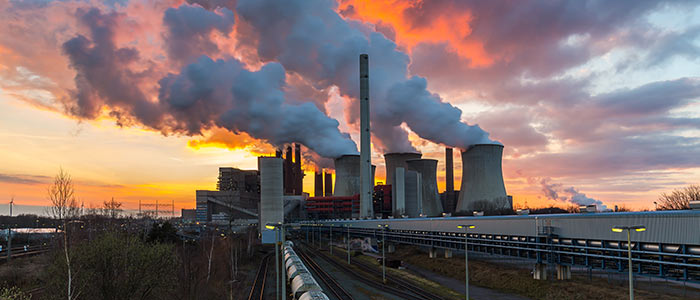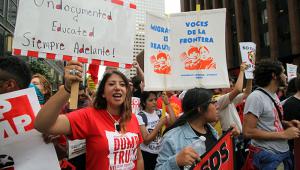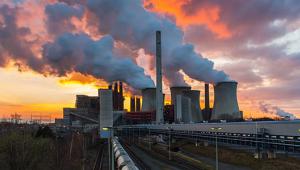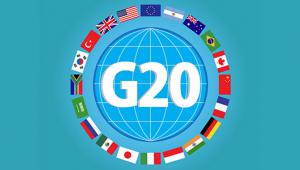Web_GreenhouseGasses_shutterstock_314808188.jpg

Greenhouse gas emissions
Trump announced his final decision on the Paris agreement, signed by nearly 195 countries in December 2015, last night, after first signalling his intent to do so during his presidential campaign.
The move pits the US against almost every other country in the world and marks an abdication on its part from both its role as a global leader and its responsibilities with regards to tackling one of the world’s greatest challenges.
In an address yesterday, Trump said the “draconian” agreement was unfair to the US, punishing its economy and workers and placing America’s “phenomenal wealth” under “lock and key”.
It marked, he said, “a massive redistribution of US wealth to other countries”.
He explained the US would withdraw from the agreement, with the aim of negotiating new terms to reenter the deal or an “entirely new transaction” on terms that were “fair”, and end US contributions to the Green Climate Fund.
We are deeply disappointed that the United States federal government has decided to withdraw from the Paris Agreement.
— Justin Trudeau (@JustinTrudeau) 1 June 2017
His decision, while anticipated, has sparked a global outcry and been widely deplored as reckless. World leaders have taken extraordinary steps to voice their disapproval and make clear the magnitude of what Trump has chosen to do.
French president, Emmanuel Macron, for instance, became the first to address both his country and the world from the Èlysée Palace in English, in a speech where he described Trump’s decision as a “mistake”.
Come here with us to work together on concrete solutions for our climate, our environment. pic.twitter.com/JXiqgMP8Xy
— Emmanuel Macron (@EmmanuelMacron) 1 June 2017
Macron and five other members of the G7, who spent last week trying to convince the final member of the group to stick with the Paris accord, quickly issued a statement expressing their “deep regret” around Trump’s decision and reaffirming their commitment to the plan.
Later, German chancellor Angela Merkel described the move as “utterly regrettable”, to use “very restrained language”.
The G6, and Macron individually, suggested that the deal should not be renegotiated. It took years of painstaking talks to bring all 195 countries on board in the first place: no country wants to endanger this unprecedented and hard-won unanimity, and many are will likely be unwilling to concede further room to the US.
The head of the United Nation’s secretariat supporting countries’ efforts under the Paris deal and other climate change agreements, the UNFCCC, agreed:
#ParisAgreement, a historic treaty signed by 194 & ratified by 147 countries, cannot be renegotiated based on the request of a single Party. https://t.co/FEz1JsVmk0
— Patricia Espinosa C. (@PEspinosaC) 2 June 2017
Instead, the US will join only two other countries in the world that are out in the cold on this global initiative: Syria and Nicaragua – which objected to the deal on the basis it did not go far enough.
Former US president Barack Obama, under whose leadership the deal was signed, said this would mean the US will lose out on the benefits of the deal, including the industries and jobs created. Such criticism of a sitting president from his predecessor is rare, and reserved for serious circumstances.
American states and cities, meanwhile, expressed their defiance and stressed they will continue with their own climate change initiatives.
World: the Empire State stands with you. New York shines green for our planet, our health and our children's future. #ParisAgreement pic.twitter.com/Ubw7WSPgu0
— Andrew Cuomo (@NYGovCuomo) 2 June 2017
And they were joined by cities elsewhere:
C40 cities are lighting up green in solidarity with the #ParisAgreement. Mayors & citizens know that taking climate action is essential! pic.twitter.com/ymRlnUyudj
— C40 Cities (@c40cities) 2 June 2017
American business leaders, many of whom supported the deal, meanwhile also made their opinions clear. Lloyd Blankfein, the CEO of Goldman Sachs, felt moved to post his first and only tweet:
Today's decision is a setback for the environment and for the U.S.'s leadership position in the world. #ParisAgreement
— Lloyd Blankfein (@lloydblankfein) 1 June 2017
Robert Iger, chairman and CEO of The Walt Disney Company, went a step further:
As a matter of principle, I've resigned from the President's Council over the #ParisAgreement withdrawal.
— Robert Iger (@RobertIger) 1 June 2017
Even energy companies disapprove:
Our support for the #ParisAgreement is well known. We will continue to do our part providing more & cleaner energy. https://t.co/j5i0EQDzFi
— Shell Oil Company (@Shell_US) 1 June 2017
Trump did however find support within his own party, with a number of Republicans voicing their backing, including house speaker Paul Ryan:
The #ParisAgreement would have driven up the cost of energy, hitting middle-class & low-income Americans the hardest.
— Paul Ryan (@SpeakerRyan) 2 June 2017
The decision by @POTUS to withdraw America from the #ParisAgreement is a victory for our economy, sovereignty, & constitution. #PromiseKept
— Rep. Mike Kelly (@MikeKellyPA) 1 June 2017
I support President Trump’s desire to re-enter the Paris Accord after the agreement becomes a better deal for America and business.
— Lindsey Graham (@LindseyGrahamSC) 1 June 2017













